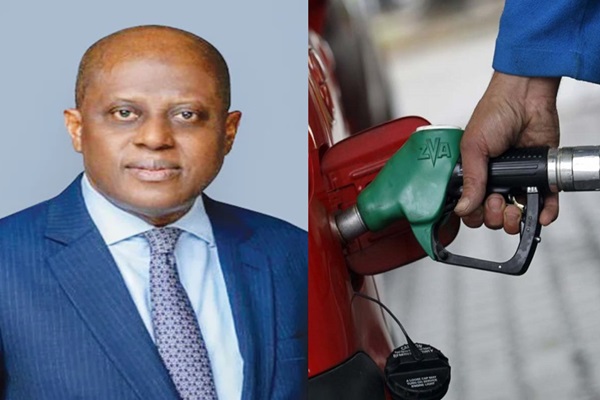In a significant development for Nigeria’s economy, Central Bank Governor Olayemi Cardoso announced that the nation anticipates a decline in petrol prices as both government and privately-owned refineries begin operations this year. This announcement was made at the Nigerian Economic Summit Group (NESG) 2024 Macroeconomic Outlook Report launch in Lagos on January 24, 2024.
Cardoso highlighted that this decrease in fuel costs would have broad implications across various sectors, contributing to economic efficiency and resilience. Among the refineries starting production are Dangote Refinery and the Port Harcourt Refinery. This development is part of a collaborative effort between the Central Bank, the Ministry of Finance, and the Nigerian National Petroleum Corporation (NNPCL) to strengthen the country’s economy.
Addressing the currency value, Cardoso mentioned the naira’s current undervaluation, trading around N1,370 to the dollar at the parallel market. He expressed confidence in achieving genuine price discovery through coordinated fiscal measures.
Dr. Olusegun Omisakin, the Chief Economist at NESG, outlined the economic outcomes of stable and appropriate exchange rate pricing in Nigeria. The NESG report recommends enhancing market liquidity, regulating speculative activities, and encouraging foreign investments to stabilize the exchange rate. Additionally, it advises aligning local access to foreign exchange to the Naira equivalent to facilitate international trade.
Cardoso acknowledged the challenges faced by the Nigerian economy, emphasizing that the nation is at a turning point with bold reforms across various segments. These reforms, while challenging, are aimed at sustainable solutions. He noted recent positive international ratings and anticipations of improvements in the fiscal and external positions due to reform efforts.
The global economic landscape, as described by Cardoso, is marked by inflation and subdued growth prospects. Despite these challenges, Nigeria’s real GDP growth is projected to be 3.76 percent in 2024, slightly higher than the estimated 3.75 percent in 2023. This growth is expected to be driven by improved crude oil prices and production, and key government reforms.
Cardoso also mentioned the expected stability in inflation due to the Central Bank’s policy, targeting a reduction to 21.4 percent in 2024. This stability is seen as beneficial for businesses, potentially leading to lowered policy rates and stimulating investment, growth, and job creation.
Furthermore, the CBN’s adoption of a market-determined exchange rate policy is projected to stabilize the foreign exchange market in 2024. This reform aims to streamline and unify multiple exchange rates, enhancing transparency and reducing arbitrage opportunities. A stable exchange rate is expected to attract foreign investment and increase Nigeria’s appeal to global investors.
The NESG report emphasized the need for an economic transformation roadmap, highlighting policy priorities for medium-term economic growth. The report underscores the importance of stability in exchange rates and inflation control for economic growth, social cohesion, and financial stability.
In conclusion, the NESG report advises achieving a minimum revenue-to-GDP ratio of 15 percent and reducing the public debt service-to-revenue ratio to below 22 percent from the current 80.2 percent. This fiscal discipline is essential for creating space for economic development and stability initiatives.
